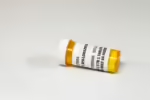Can Seroquel Be Abused?

Symptoms of mood disorders like schizophrenia, bipolar disorder and major depressive disorder challenge countless men and women every day and decrease quality of life in more ways than one. For this reason, and to feel a sense of stability and normalcy in their day-to-day lives, it is not uncommon for them to seek out the benefits of mood-adjusting medications.
While there are countless benefits to pursuing medication to help stabilize one’s symptoms, there are, of course, side effects. To maximize the benefits and minimize the risks of taking prescriptions like Seroquel, a complete understanding of all the medication is capable of is key.
What is Seroquel?
Seroquel, also known by its generic name quetiapine, is a medication commonly prescribed to treat severe mental health conditions. It is classified as an atypical antipsychotic drug and is primarily used to manage symptoms of schizophrenia, bipolar disorder and major depressive disorder. Seroquel affects neurotransmitters in the brain, specifically dopamine and serotonin, which are crucial in regulating mood and behavior.
While Seroquel can be an effective treatment for mental health disorders when used as prescribed by a healthcare provider, it does have the potential for abuse. Some individuals may misuse Seroquel by taking higher doses than recommended, combining it with other substances or using it recreationally to achieve a sedative or euphoric effect. This can be dangerous and may lead to serious health risks, including overdose and dependence.
What are the side effects of Seroquel?
Like any medication, Seroquel can cause side effects. Common side effects may include:
- Drowsiness
- Dizziness
- Dry mouth
- Constipation
- Weight gain
- Increased blood sugar levels
- Unwanted changes in cholesterol levels
- Changes in heart rate
Additionally, according to the Cleveland Clinic, you may experience less common side effects, including difficulty regulating body temperature, symptoms of high prolactin level (unexpected breast tissue growth, discharge from the nipple, change in sex drive or performance, irregular menstrual cycle), and/or symptoms of neuroleptic malignant syndrome (high fever, stiff muscles, increased sweating, fast or irregular heartbeat and confusion).
What are the benefits of taking Seroquel?
Despite the potential risks and side effects associated with Seroquel, there are also several benefits to using this medication under the guidance of a healthcare provider. Seroquel can help alleviate symptoms of psychosis, mania and depression, allowing individuals to manage their mental health conditions better and improve their overall quality of life.
Additionally, Seroquel may be effective for individuals who have not responded well to other medications or treatments, providing a valuable alternative option for managing mental health symptoms.
Is Seroquel often abused?
Seroquel is not a controlled substance because it does not have a high potential for addiction. If prescription instructions are correctly followed, Seroquel’s benefits outweigh the risks.
However, it has been noted that higher doses of Seroquel or taking someone else’s Seroquel medication may occur in those seeking the anti-anxiety and sleep-benefitting component of the drug. Misuse of the drug is where the potential for abuse most often occurs.
You may notice lifestyle changes and unwanted habits beginning to form if you misuse Seroquel. These signs may include:
- Needing to take more frequent doses to feel the same effects
- Not feeling the same relief from your prescribed dose and seeking to increase dosing on your own
- Seeking medical advice from multiple doctors in the hopes of receiving more than one prescription for the sake of purchasing more of the drug
- Experiencing withdrawal symptoms (headaches, body aches and other flu-like symptoms) when you miss a dose or try to stop taking the drug if you have been taking it in excess
- Taking the medication in ways that it was not prescribed for, including snorting or injecting
- Experiencing changes in sleeping habits, including difficulty sleeping or sleeping too much
- Withdrawing from friends, family and other social situations
- Failing to meet obligations at work or school
- Losing interest in previously enjoyed hobbies and activities
- Combining the drug with other sedatives or psychoactive medications for the sake of enhancing effects
If you have noticed these symptoms or have been struggling with Seroquel abuse, help is available and recovery is possible. With the right medication management, detox program and recovery plan, even those who have battled Seroquel (or any) addiction for a long time can find the help they need and the right plan to ensure their success.
Mental health and addiction treatment for you and your family
If you have been battling an addiction to any form of medication or substance, recovery is possible. To get in touch with a trained mental health counselor today to discuss your options for mental health care, reach out to Silvermist Recovery by calling (412) 561-9558 for additional resources.






